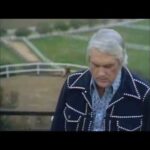Lost In Love – Air Supply
“Lost in Love” by Air Supply is a soft rock ballad that became one of the defining hits of the late 1970s and early 1980s for the Australian duo. Written by Graham Russell, who is one half of the band alongside Russell Hitchcock, the song was first released in 1979 and later gained international acclaim with its re-release in 1980. It is celebrated for its emotional depth, tender melody, and harmonious vocals, hallmarks of Air Supply’s signature style. The song’s structure is straightforward yet effective, combining gentle piano, subtle string arrangements, and Russell Hitchcock’s soaring vocal delivery that conveys a profound sense of yearning and vulnerability.
Lyrically, “Lost in Love” captures the emotional state of someone overwhelmed by the intensity of romantic feelings. The narrator confesses a sense of being consumed by love, unable to find clarity or control over their emotions. This raw honesty resonated with listeners at a time when soft rock ballads were a popular medium for expressing personal, heartfelt experiences. The song’s chorus, with its memorable and melodic phrasing, emphasizes both the joy and the disorientation that can accompany deep love, making it relatable to a wide audience.
The commercial success of “Lost in Love” cemented Air Supply’s place in the international music scene. It reached high positions on music charts worldwide, including peaking at number three on the Billboard Hot 100 in the United States. The track’s success also helped propel the album of the same name, solidifying the duo’s reputation for crafting emotionally powerful ballads. Its enduring appeal lies in its timeless portrayal of love’s complexity—both uplifting and consuming—combined with the duo’s skillful harmonization and smooth production that became a hallmark of their sound.
Overall, “Lost in Love” is more than just a hit single; it is emblematic of Air Supply’s ability to convey universal emotions through simple yet evocative music. Its themes of vulnerability, devotion, and the often overwhelming nature of romantic attachment continue to resonate with listeners decades after its release, earning it a lasting place in the canon of soft rock classics.







